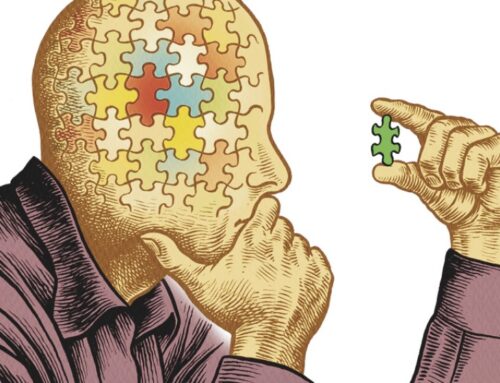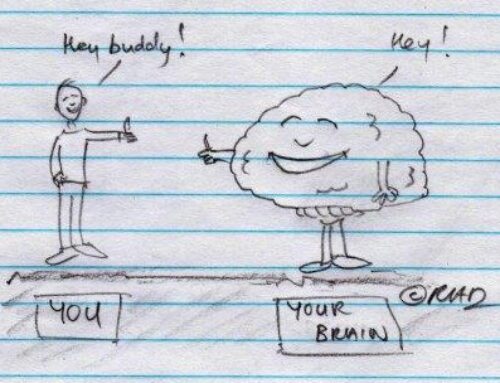Is Your Thought Helpful?
June 17, 2020
Categories: Thoughts
You don’t have to believe everything you think. You don’t have to focus on everything you think. On one level, these are simple statements. But it can be difficult to NOT lock into our thoughts and let them impact what we do.
What’s Your Favorite Desert?
My favorite desert is a Butterfinger Blizzard from Dairy Queen. If I ask you to spend a minute or two thinking about your favorite desert—really picturing what it looks like and how it tastes, you could probably bring up a clear image into your head with a lot of details. You might even find that your mouth waters or you feel hungry. But the reality is you don’t actually have the desert in front of you. All this is just happening in your brain.
The Brain as Thought-Creator
All thoughts are created by your brain. They may or may not be true. They may or may not be helpful. If a thought comes up, you don’t automatically have to buy into it or focus on it.
Cognitive Fusion
In Acceptance and Commitment Therapy (ACT), we call the process of locking into a thought “fusion.” Fusion basically means the bringing together of two things. Your thoughts might be fused with your overall sense of self—for example, you have the thought that you are a loser and it negatively impacts your view of yourself. Or, your thoughts might be fused with your actions—for example, you have the thought that you are a loser so you don’t reach out and try to meet someone for a date.
Cognitive Defusion
The opposite of fusion is “defusion”—in other words, you separate yourself from your thought. You take a step back from the thought and notice it. You aren’t trying to get rid of the thought or replace it with something else. You simply notice it without necessarily buying into it.
Is the Thought True?
In Cognitive Behavioral Therapy, people focus on whether or not a thought is “true.” While this question can sometimes be useful, I have found it to be of limited value. First, sometimes it’s difficult to figure out whether a thought is true in any sort of objective sense. If I’m having the thought: “I’m a loser,” how can I ever ultimately know whether that is true? Second, sometimes a thought can be true but not very helpful. Maybe it’s true that I am a loser, but dwelling on the thought will probably not move me closer to my overall goals in life. It will likely just make me more depressed.
Is the Thought Helpful?
Instead of asking whether a thought is true, I have found it is more effective to ask whether the thought is helpful. In other words, what is the effect of the thought on me? Is dwelling on the thought moving me toward my most important goals? Is it helping me live a life that is consistent with my values? If so, by all means, focus on the thought. But if not (and a lot of thoughts are not helpful), it’s probably better to defuse from the thought.
A Simple Defusion Strategy
How can you defuse from a painful thought? There are a lot of cognitive defusion strategies, but one simple intervention is to use the phrase “I’m having a thought that…” when you experience a thought pop up. This helps you to take a step back from your thought, and get more distance from it. So, instead of “I’m a loser” you take a step back and say “I’m having the thought that I’m a loser.” Practice this strategy whenever a painful thought pops into your head.
Discussion
How effective has it been to change your thoughts? If you’re like most people, changing your thoughts doesn’t usually work. Instead, try to take a step back and defuse from your painful thoughts.

Related Thoughts

Subscribe To My Newsletter
Join my mailing list to receive the latest blog posts.
Receive my e-book “The Mental Health Toolkit” for free when you subscribe.





